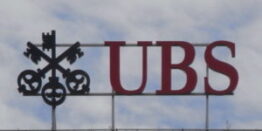
Merrill Lynch, Pierce, Fenner & Smith, headquartered in New York, York, New York, was censured and fined $6,250,000.00 by Financial Industry Regulatory Authority (FINRA) after consenting to findings that the firm failed to supervise loan management accounts, and failed to supervise suitability transactions pertaining to Puerto Rico securities. Letter of Acceptance, Waiver and Consent, No. 2014042578001 (Nov. 30, 2016).
According to the AWC, between January of 2010 and July of 2013, the firm failed to create and maintain reasonable supervision procedures and systems regarding suitability of Puerto Rico closed end funds as well as municipal bonds. Apparently, the Puerto Rico Securities enabled residents of Puerto Rico to enjoy certain advantages from a tax perspective, such as gift tax and estate exemptions.
The AWC revealed that residents of Puerto Rico had received incentives from the government of Puerto Rico to make investments in the closed end funds and municipal bonds via the creation of an estate tax associated with property which a Puerto Rico resident owned and which had not been held within Puerto Rico. Additionally, a triple tax benefit was provided to investors in certain cases based upon making investments in the Puerto Rico securities.
Further, the AWC stated that the various benefits afforded to the Puerto Rico customers resulted in such customers having assets substantially concentrated in Puerto Rico Securities. Customers reportedly purchased additional closed end funds and municipal bonds by utilizing leverage within margin accounts or by way of loan management accounts. Evidently, in order for such customers to uphold their leveraged positions, they were required to maintain equity in their accounts for collateral.
According to the AWC, certain customers faced substantial risks as result of being substantially concentrated in the Puerto Rico securities coupled with using leverage, considering that as few as one harmful event within the financial markets could cause such customers’ accounts to be depleted. Apparently, between 2012 and 2013, this risk was more pronounced given the state of the debt market in Puerto Rico.
The AWC indicated that Merrill Lynch failed to create and implement supervisory procedures and systems which would make sure that transactions were suitable for customers that had been utilizing leverage and substantially concentrating their accounts in the closed end funds and municipal bonds. The firm purportedly failed to consider the financial profiles, investment objectives, and overall risk tolerance for such customers.
The AWC stated that by July of 2013, hundreds of investors had at least seventy-five percent of their accounts concentrated in the Puerto Rico Securities, with approximately fifty investors’ accounts leveraged on margin or by the loan managed accounts. Apparently, twenty-five investors received maintenance or margin calls, in which customers suffered an estimated $1,200,000.00 in losses upon liquidation of the Puerto Rico securities in order for such investors to satisfy the maintenance or margin calls.
The firm was additionally found to have failed to supervise the loan management accounts, which was a securities lending program; a line of credit. Apparently, this program enabled investors to borrow funds from Bank of America via using Merrill Lynch brokerage account securities as the collateral. The AWC stated that between January of 2010 and November of 2014, at least 121,000 loan management accounts had been opened, where Bank of America extended $85,000,000,000.00 in credit to customers. Evidently, 65,000 non-purpose loans were opened, in which loan balances totaled $27,400,000,000.00.
The AWC stated that non-purpose loan management accounts, unlike purpose loan management accounts, were prohibited from being utilized for purposes of buying margin stock. Apparently, the firm failed to train registered representatives about such accounts, or provide an education on such prohibitions and regulations associated with non-purpose loan management accounts.
Apparently, the firm did not have reasonable supervision systems and procedures geared to detect and prevent non-purpose loan management accounts proceeds to be used to buy margin stock. This supervisory failure resulted in investors drawing down on their non-purpose loan management accounts, in which such investors purchased margin stock on thousands of occasions after funds were transferred from Bank of America to the customers’ brokerage accounts.
FINRA found that Merrill Lynch’s conduct was violative of FINRA Rules 2010, as well as NASD Rules 3010(a) and 3019(b). In addition to the $6,250,000.00 fine, Merrill Lynch consented to providing twenty-two customers with restitution totaling $779,999.00.
The information contained herein has been obtained from reliable sources however may not be accurate and is not guaranteed by us. Readers are encouraged to undertake their own independent investigation and evaluation of the relevant facts. All claims and allegations are subject to adjudication, decisions may be subject to appeal, and no inference is intended, nor should any inference be made from any information contained herein from any source.
This posting and the information on our website is for general information purposes only. This content should be not considered legal advice, and any responses, comments, e-mails, other communications do not form any attorney client relationship. Attorney Advertisement. See Important Disclaimer
Guiliano Law Group
Our practice is limited to the representation of investors. We accept representation on a contingent fee basis, meaning there is no cost to you unless we make a recovery for you. There is never any charge for a consultation or an evaluation of your claim. For more information, contact us at (877) SEC-ATTY.
For more information concerning common claims against stockbrokers and investment professionals, please visit us at securitiesarbitrations.com
To learn more about FINRA Securities Arbitration, and the legal process, please visit us at securitiesarbitrations.com







